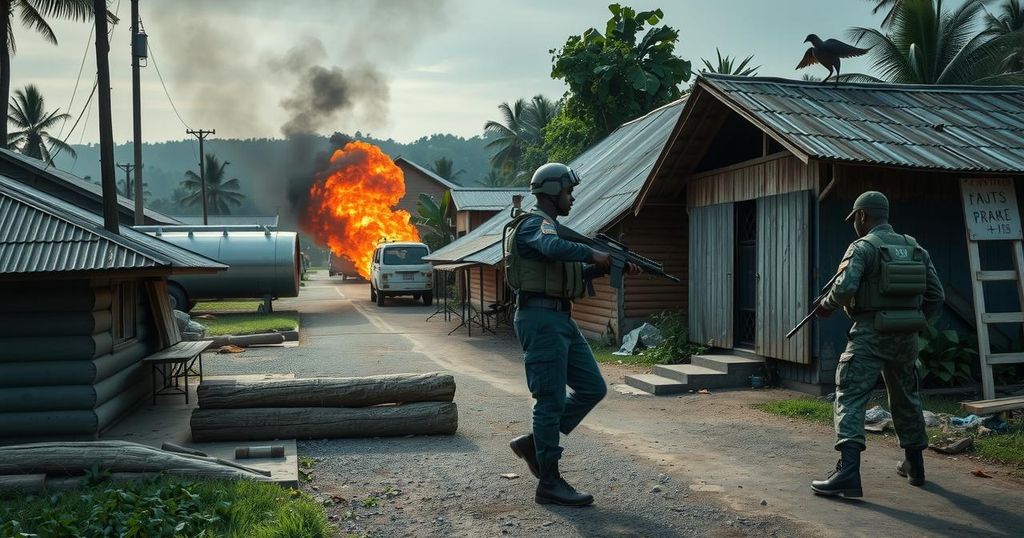Rebels of the M23 group have taken control of two strategic towns in eastern Congo, escalating an already critical humanitarian crisis that has displaced over seven million people. Local officials and residents express growing alarm over the government’s inadequate response to the ongoing conflict, with concerns that Rwandan forces may be backing the rebels. Despite a ceasefire agreement signed in July, fighting has resumed, heightening fears for civilian safety in the region.
Rebels from the M23 group have captured two significant towns in eastern Congo, according to local residents and officials. The towns of Katale and Masisi fell under their control in the past week, with Masisi situated approximately 49 miles west of Goma, the regional capital. This escalation of hostilities has exacerbated the already severe security and humanitarian crises in the region, causing widespread displacement and suffering among the local population.
The M23 group is one of over one hundred armed factions engaged in a prolonged struggle for territorial dominance in the mineral-rich eastern part of Congo, which borders Rwanda. This ongoing conflict has rendered over seven million people homeless and dependent on humanitarian assistance. Lawrence Kanyuka, the political spokesperson for the M23, confirmed the group’s takeover of Masisi via the social media platform X, emphasizing their commitment to civilian protection amidst the chaos.
Alexis Bahunga, the deputy for Masisi territory, corroborated that Masisi is currently under M23 control, describing the humanitarian situation as catastrophic, with displaced individuals scattered into camps across the territory. Colonel Djike Kaiko, a spokesperson for the Congolese army, stated that he is in the process of verifying these reports.
John Banyene, the president of the civil society group Forces Vives du Nord-Kivu, expressed his dismay over the government’s inadequate response, condemning the “lethargy” displayed during the rebel advancement. Meanwhile, local resident Bernard Kanyama reported witnessing individuals fleeing from their homes due to attacks, further highlighting the grim reality of life in this conflict-affected area.
Both the Congolese government and the United Nations have accused Rwanda of supporting the M23 group, a claim the Rwandan government has denied. However, in February, Rwanda disclosed the presence of its troops and missile systems in eastern Congo, citing security concerns linked to the increasing Congolese military presence near the border. U.N. experts estimate that around four thousand Rwandan forces are currently operating within Congo.
Despite signing a ceasefire agreement with M23 in July, which became effective in August, conflicts have reignited, prompting the United States to express significant concern regarding the continued violations of the ceasefire by M23 forces.
The conflict in eastern Congo has a long history characterized by the presence of numerous armed groups competing for access to the area’s valuable mineral resources. The M23 group has emerged as a prominent faction, known for its recurrent military offensives and control over various territories. The humanitarian conditions in the region have steadily deteriorated due to ongoing violence, leading to significant displacement and a public health crisis. The international community, including the United Nations, has been consistently involved in attempts to stabilize this volatile region and address the widespread humanitarian needs of its population.
The seizure of Katale and Masisi by the M23 rebels marks a troubling escalation in the ongoing conflict in eastern Congo, intensifying the humanitarian crisis that has displaced millions. Local officials have voiced their concerns about the government’s failure to react effectively to the advancements made by the rebels. While the region remains under significant distress, allegations of support from Rwanda highlight the complex international dimensions of this conflict, calling for urgent attention from the global community to alleviate the worsening humanitarian situation.
Original Source: triblive.com






